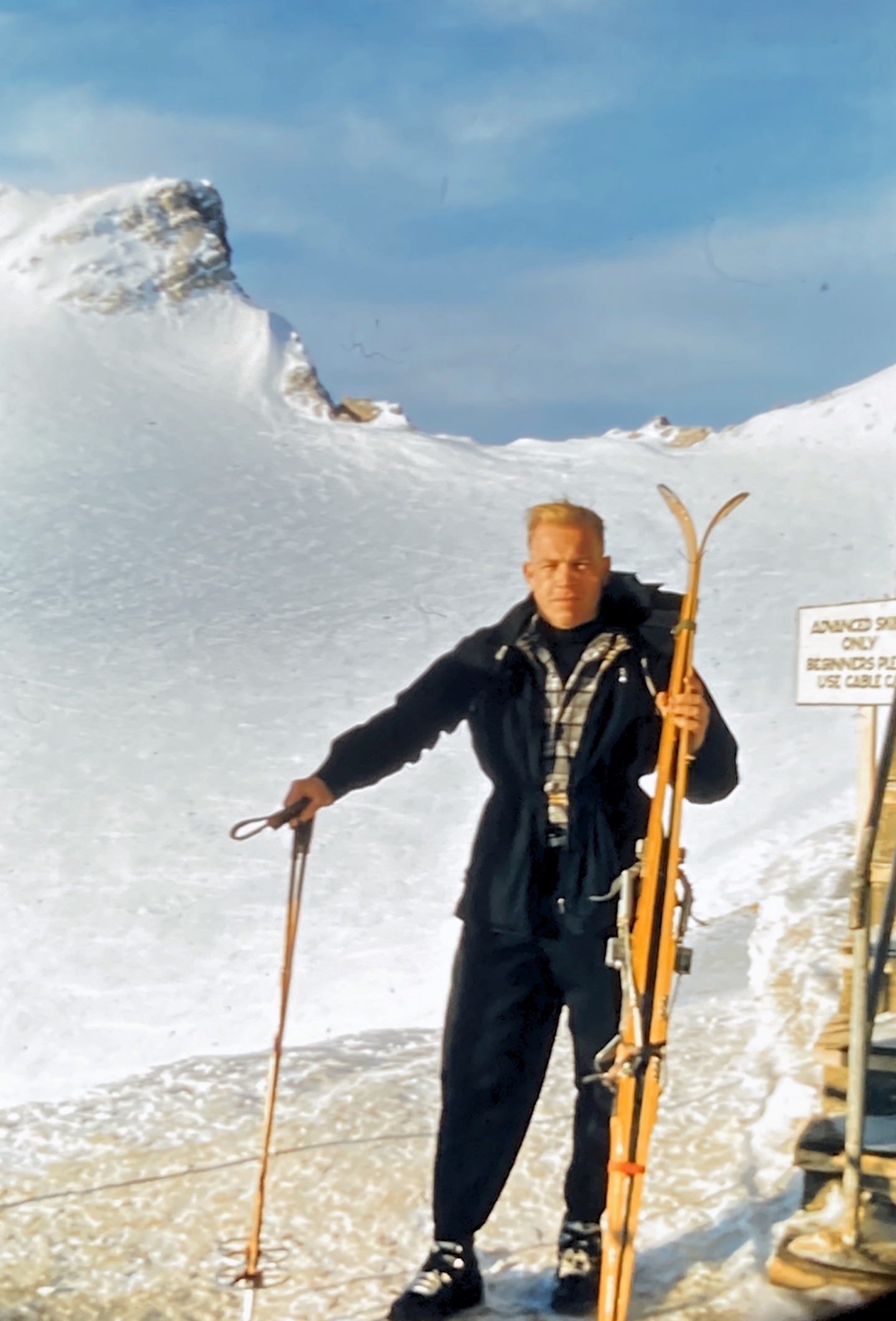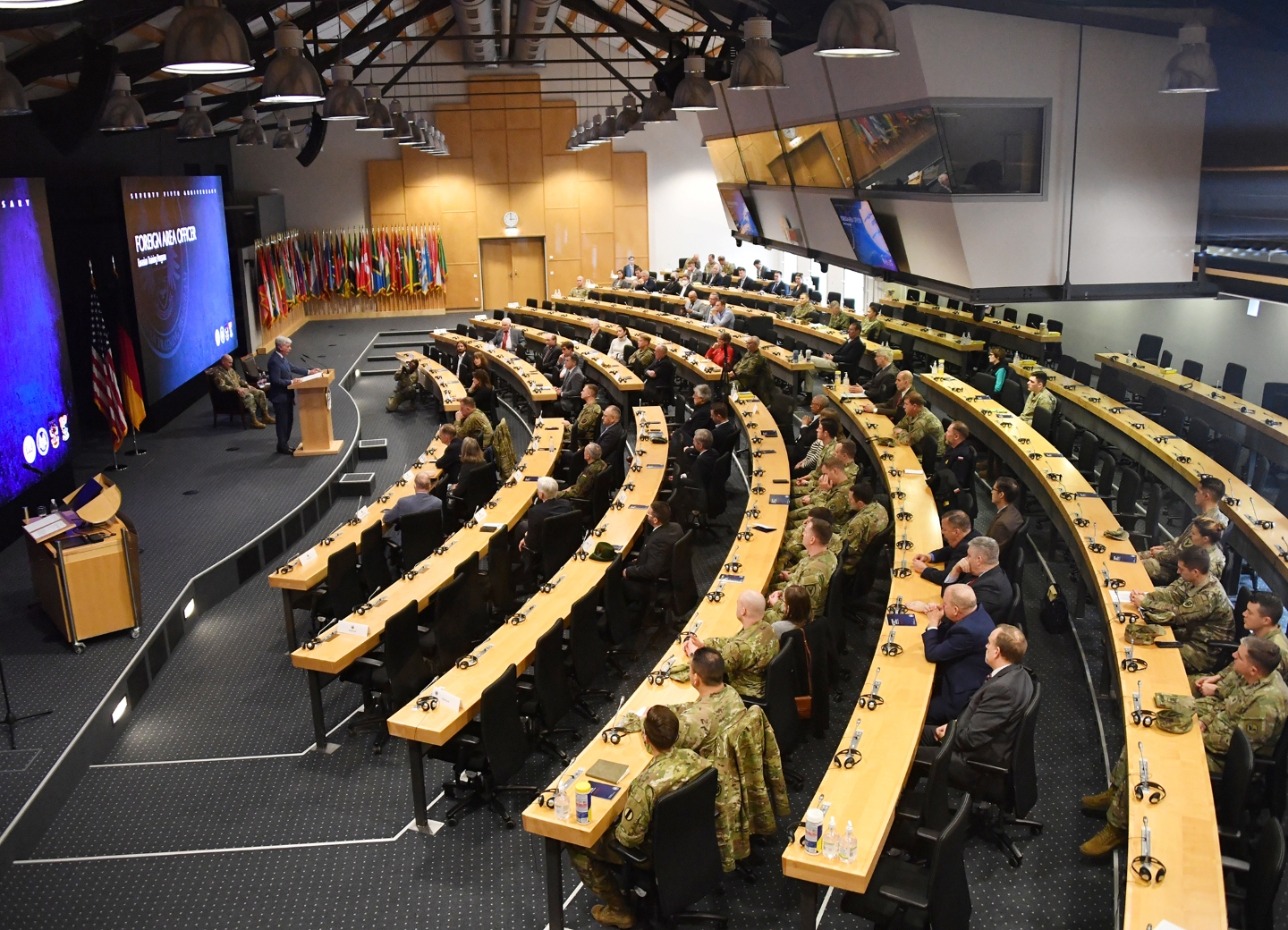
Eurasian Foreign Area Officer Program Celebrates 75 Years
The Eurasian Foreign Area Officer program celebrated their 75th anniversary in a ceremony held at the George C. Marshall Center in Garmisch-Partenkirchen, Germany, Feb. 3, 2023.
“This (Eurasian FAO) community binds you together. It binds us together,” said Gen. Christopher Cavoli, commander of U.S. European Command, Supreme Allied Commander Europe and former FAO, speaking at the event. “It produced some of the great memories of my career and my life. But it produced some of the richest opportunities that I’ve ever had outside of my genuine Army experience.”
It was in 1947, two years after World War II had ended and just as the Cold War was heating up, that the FAO program, then known as Field Detachment Russia, or Det. R, was activated. The original mission was to provide training to Army and Air Force personnel to establish a pool of personnel who were knowledgeable in all things U.S.S.R. The Soviet-U.S. relationship being what it was, the personnel needing in-country training had to get their training somewhere. So, the War Department settled on Oberammergau, a small German Alps community deep in Bavarian country.
Originally planned as a four-year training course, the program eventually settled into a routine - the first year was spent at a civilian university stateside followed by a year of intensive language training at the Army Language School (now called Defense Language Institute Foreign Language Center), after which they were sent to Det. R, where they spent the next two years at graduate level studies.
Not long after the first few classes went through, it was determined that there was a need for U.S.S.R. specialists beyond just FAOs. One of those specialists was Glenn Nordin.
“I was the only lieutenant in the school and working with all these colonels and lieutenant colonels and majors and captains,” said Nordin, who attended Det. R for the newly formed NSA from 1954-1956. “I was just a little guy.”
As a young, single officer of 24, when he wasn’t in class, Nordin was out seeing Europe or exploring the Alps. “It was a wonderful time for a young person,” he said.
A few years after Nordin’s return to NSA, the Cuban Missile Crisis happened, an international event that led to the beginning of the Moscow-Washington Hotline, or MOLINK, the (fabled) red phone between Russia and the U.S. meant to help prevent any future catastrophes from happening. Nordin was one of the first ones chosen to work on the hotline.
Civilians were also part of the program. One particularly famous Det. R graduate was Amb. Jack F. Matlock Jr., then a Foreign Service Officer, in 1961. He served as an ambassador to the Soviet Union from 1989-1991.

Twenty years after Nordin began his experience with Det. R, Joseph Clare arrived in Germany, this time to Garmisch-Partenkirchen, to attend the two-year program now named the U.S. Army Institute for Advanced Russian and East European Studies.
An officer fresh from a tour in Vietnam, Clare had been looking for a change in Army careers when he heard about the program.
“I had pretty vivid memories of the Cuban Missile Crisis and, you know, Russia is really the place that we need to have specialists to deal with. So that’s why I picked Russia,” he said.
With a second tour in Vietnam between his language training in Monterey and his move to Germany, Clare was just happy another tour wasn’t on the horizon.
“It was a good life here (in Garmisch) because I think virtually all of us, and all the military people in class with maybe one or two exceptions, had been on two tours in Vietnam at that point…fortunately, that was off the table at that point when we came in 1974.”
After his time in the program, Clare went on to do work that directly impacted U.S. national policy on the Soviet Union.
Although the program had more name changes - U.S. Army Russian Institute, and the Foreign Area Officer and Language Training Institute - before settling on Eurasian FAO program, it remained the same in its mission and dedication. Once the U.S.S.R. dissolved, the classroom time shortened and became more focused on field experience, especially once it became a functional element of the Marshall Center in 1993.
“I like to say that the current iteration of the FAO training program is a legacy organization, but certainly not an anachronism,” said Lt. Col. Vincent Mucker, current director of the FAO program. “Over the last 75 years, the real mechanics of the program have not changed that much. We still provide intensive language training. We provide, through the Marshall Center here, an opportunity for in-region training and exposure to and immersion in the cultures to which we are training.”

The official 75th anniversary falls in June 2022, but because of Russia’s unlawful invasion of Ukraine at the beginning of the year, the celebration had to be postponed. It was a celebration that nearly didn’t happen because of an effort to disband the program in the early 2000s. There was an optimism in post-cold war peace with some believing that in-country training in Kiev or Moscow was preferable to training in Germany.
Mucker said, “I can think of no better testament to the value of the FAO program than this - at a time when Europe finds itself in the biggest crisis since World War II, the U.S. Department of Defense and NATO are depending on a FAO Program alum, Gen. Chris Cavoli, to lead our unified response as Supreme Allied Commander-Europe.”
Ultimately, Mucker says, the program is what it is today because of those who served before.
“If you look back across those who came before us under Detachment R, their successes have led to really this salience of the foreign area officer corps today,” he said. “From that standpoint, I think we owe them a huge debt of gratitude because in 2023, we stand on the shoulders of some real legends and some real giants who came before us.”